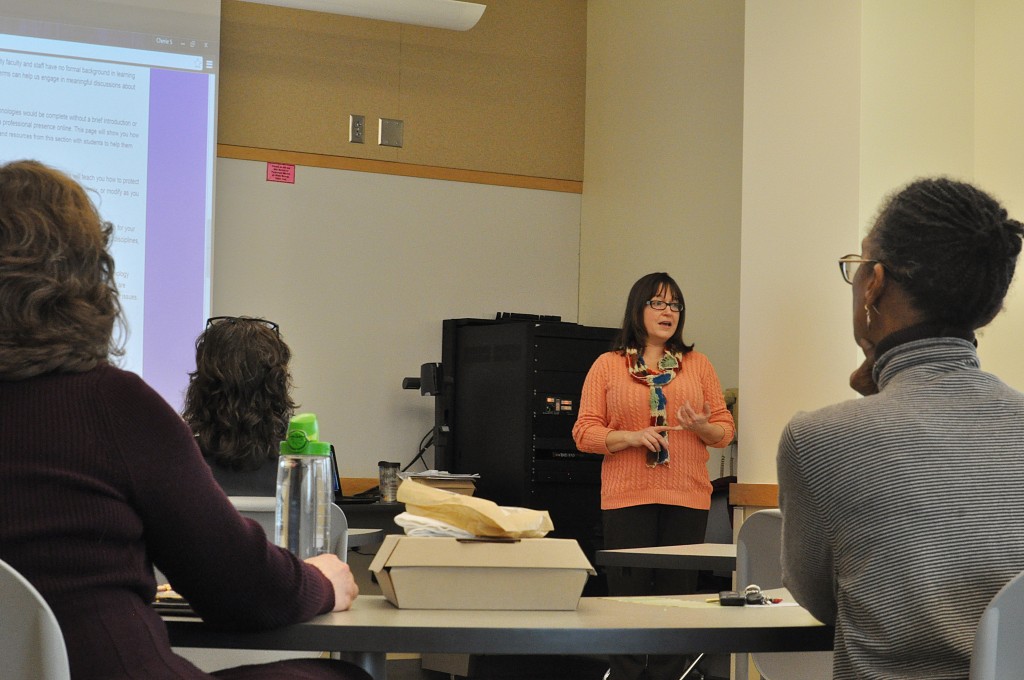
A new project coming to Binghamton University aims to help professors bring their classrooms into the 21st century through the incorporation of technology.
Mobile apps, social media and citation management were some of the topics discussed at the information session held on Wednesday afternoon for the Tools of Engagement Project (TOEP). The Center of Learning and Teaching hosted the event at the Binghamton University Downtown Center, where educators were invited to learn about TOEP and technology in the classroom.
TOEP is an on-demand professional development model where faculty can register for an online course and learn more about how to integrate technology into a classroom setting. Cherie van Putten, an instructional designer for the Center of Learning and Teaching, said that TOEP exists as a resource for faculty to help better the learning process with new technologies.
“I want instructors to know that this exists and hopefully they will join,” van Putten said. “Even if they are not registering and taking part in our community, at least they know that there is that resource out there for them when they need any information.”
TOEP was initially created at the University at Buffalo, but has spread to 19 SUNY campuses including Binghamton, New Paltz and Purchase. It is funded by Innovative Instruction Technology Grants, as well as fees from each college or university that is involved.
Faculty of any discipline can register with TOEP and complete various exercises that include exploring new technologies that can be utilized in the classroom. In these exercises, users complete tasks like making a blog post or creating certain accounts on websites like Flickr or Twitter.
Frank Evangelisti, an adjunct professor of geography at BU and the director of planning and economic development for Broome County, said that certain resources TOEP offers, such as the use of programs like Endnote or Zotero to help with citation management, will be beneficial to utilizing technology in the classroom.
“I do believe appropriate technology is important in the classroom,” Evangelisti said. “Some topics are best addressed through technological methods, so it is good to have access to those tools.”
There are several Discovery Exercises available through TOEP and one of them is called “lifelong learning.” Here, users watch a video and look at different Discovery Resources on learning, digital identity and accessibility. Users can go at their own pace to complete the activities, and afterward they have the opportunity to post on the TOEP Google+ Community about their experiences and comment about specific exercises.
Van Putten said that the Google+ community is beneficial for members, and that it is important to build a community when people are in the process of learning something new.
“You post to the Google+ community and other people will respond to you,” van Putten said. “That’s another big part of learning, to have a community where you can share ideas and build off of other people’s ideas, and run things by other people that maybe know a little bit more than you.”
The technological skills educators acquire from TOEP are aimed to be easily integrated into the classroom and ultimately help students learn more efficiently.
“It’s not just about the technology,” van Putten said. “It’s about ways to serve the students better, to increase their learning and to engage them more.”


